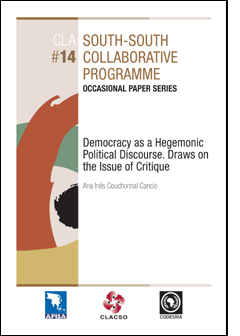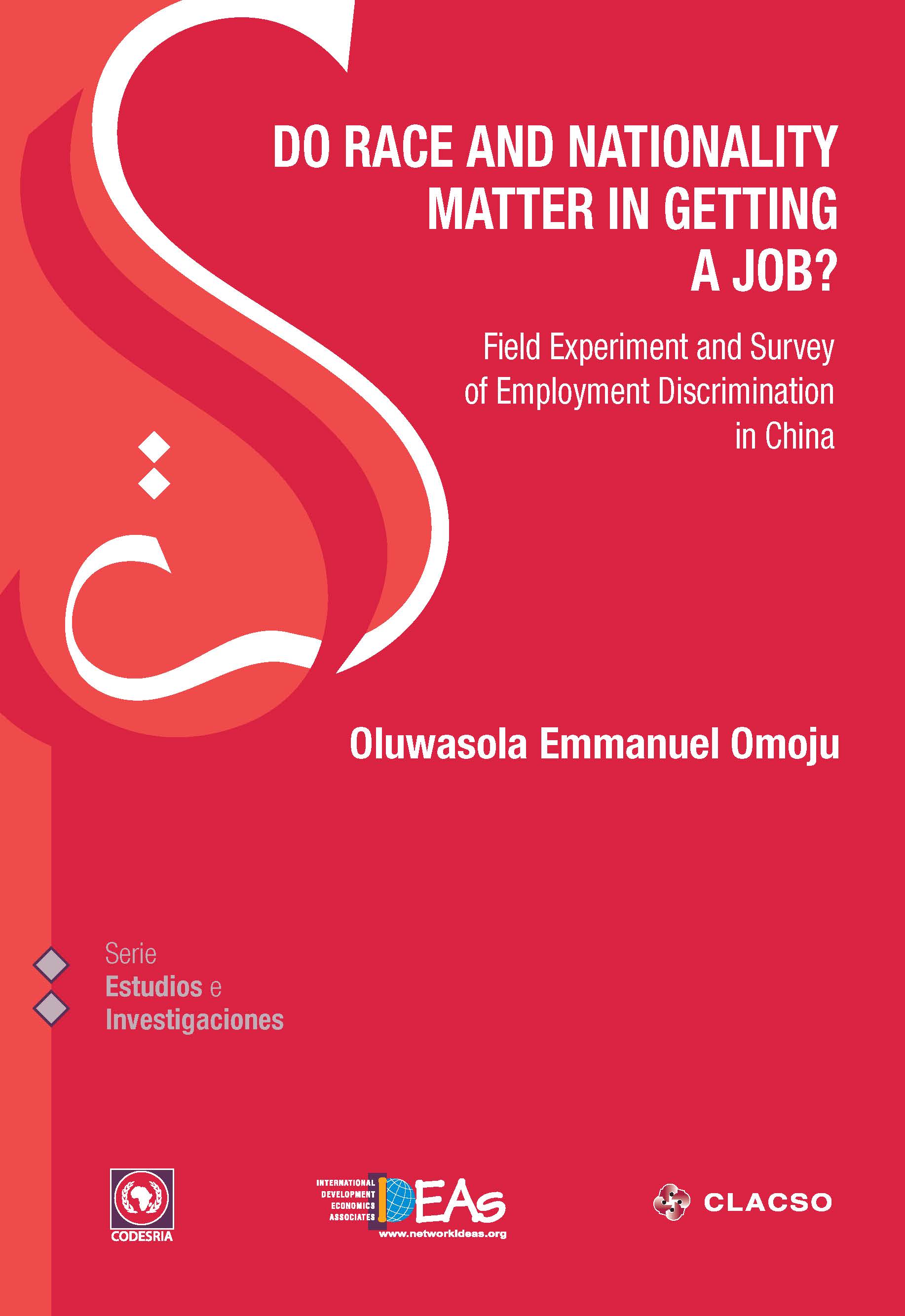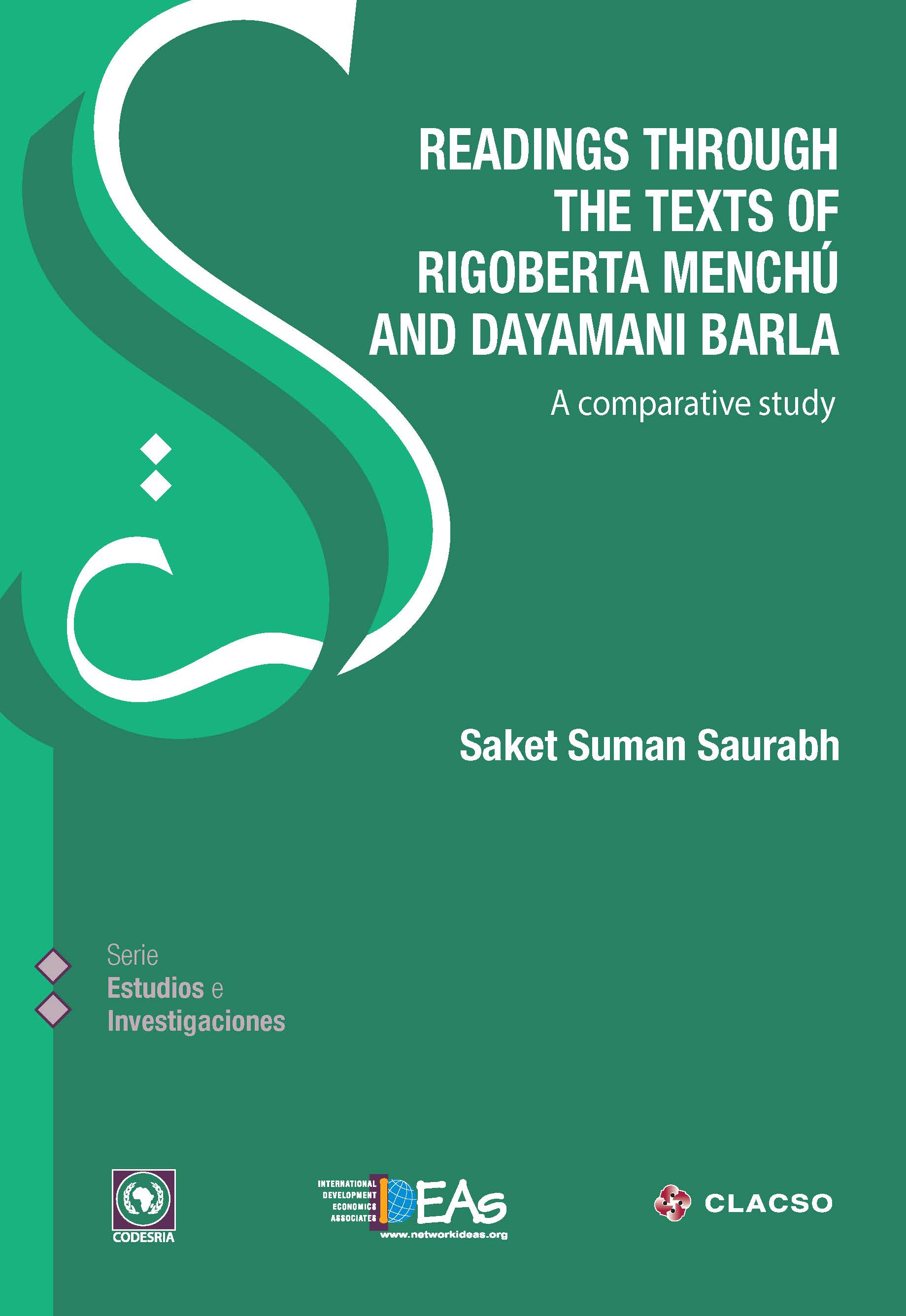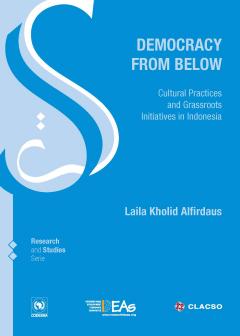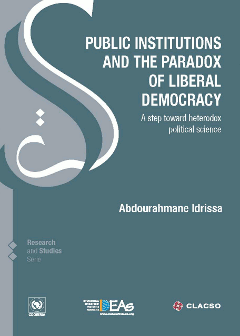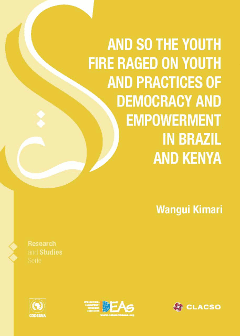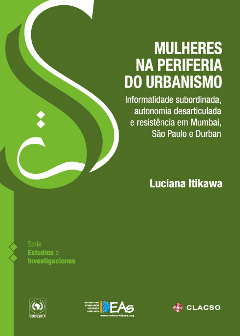- Sur-Sur.
Occasional Paper Series #14
Democracy as a Hegemonic Political Discourse. Draws on the Issue of Critique
Compartir:
To address the subject of democracy as a hegemonic political discourse implies a question that guided this writing, a question that might sound naïve during these times of social conflict and economic polarization, and enunciated by Lenin back in 1917: “But, how to justify the deception, the fooling of the people, the violation of the will of the overwhelming majority of the population?” (Lenin in Zizek, 2002: 28). Bearing in mind the subject of ideology, I will address the issue of democracy from a perspective that tends to identify the ways in which democracy actually functions as a social relation into social reality. I argue that the ideology of democracy results from the constitutive distance existing between an installed hegemonic democratic discourse and the current democratic practice, and that both instances acquire an ideological reality in what I defined as democratic functioning. From this viewpoint I argue that the ideological efficiency of democracy lies in the possibility of controlling the political potential of society, and in that sense, critique needs to address and revitalize politics as the possibility of change. In this sense, democracy can be understood as a hegemonic concept/discourse, as a primary significant organizing a given discourse, as the ideological key serving as a point de capiton, in the lacanian sense of organizer of a discourse always well ordered, audible: hegemonic. The discourse of democracy has installed a logic that imposes a concept and makes it circulate despite the possibility of its accomplishment. (...)
Detalle
- ISBN:978-987-1183-88-3
- Editorial/es:CLACSO. CODESRIA. APISA.
- Ciudad de edición:Buenos Aires.
- Fecha de publicación:Enero de 2008

